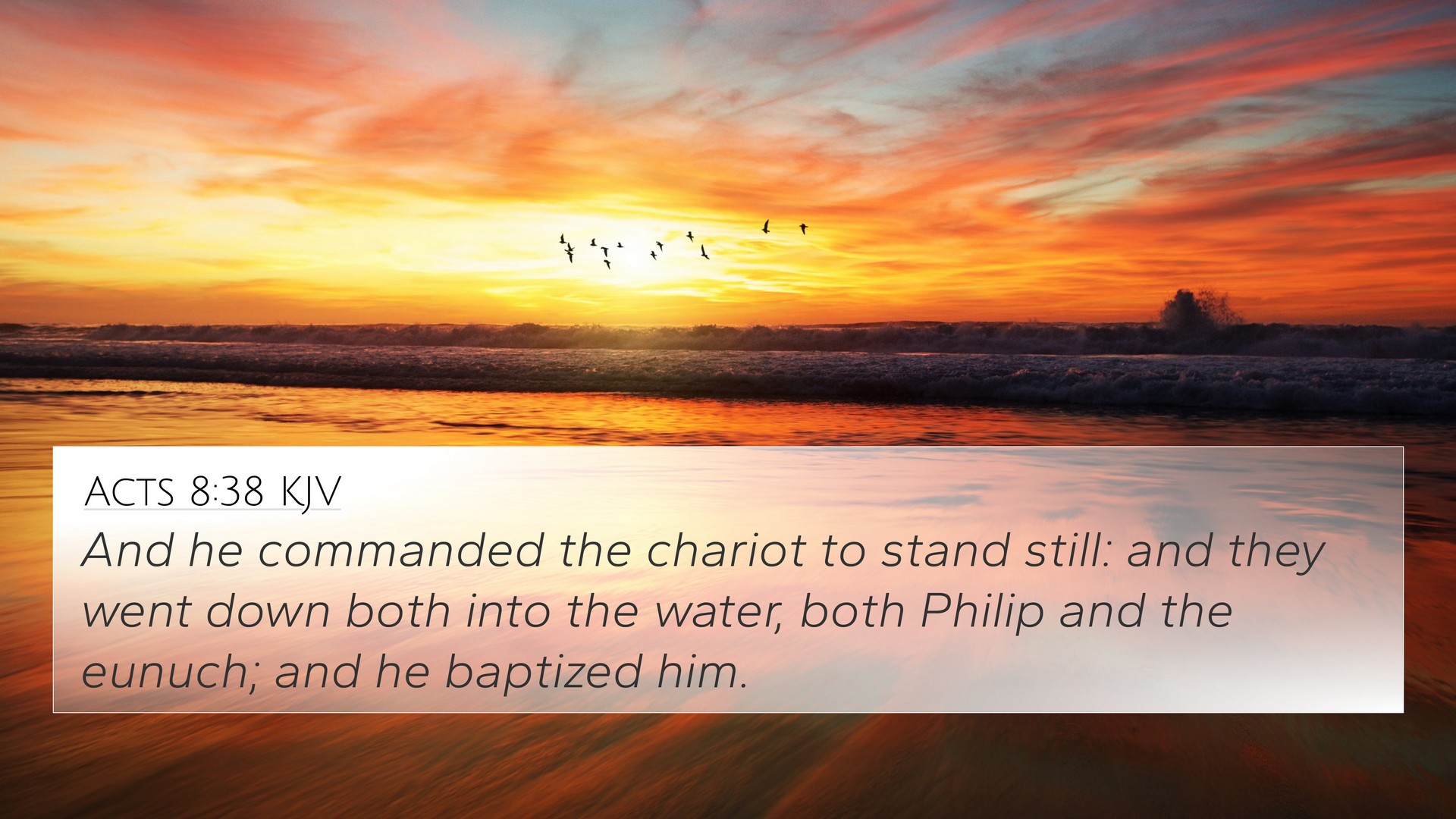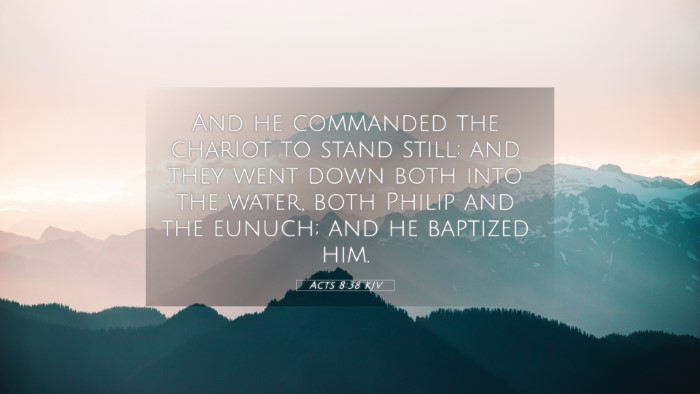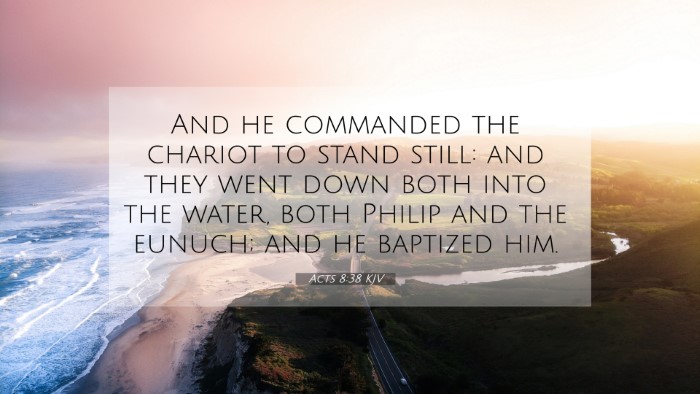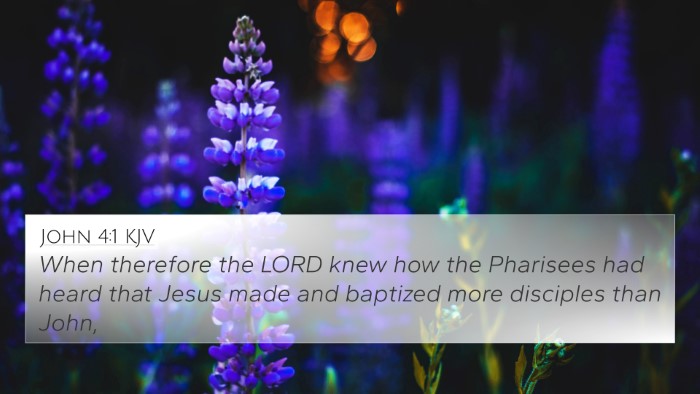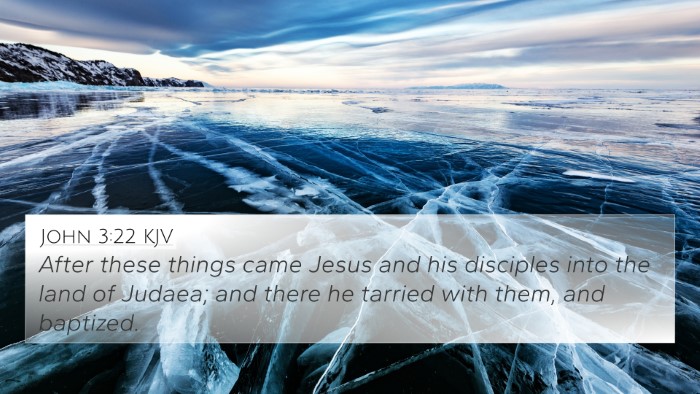Old Testament
Genesis Exodus Leviticus Numbers Deuteronomy Joshua Judges Ruth 1 Samuel 2 Samuel 1 Kings 2 Kings 1 Chronicles 2 Chronicles Ezra Nehemiah Esther Job Psalms Proverbs Ecclesiastes Song of Solomon Isaiah Jeremiah Lamentations Ezekiel Daniel Hosea Joel Amos Obadiah Jonah Micah Nahum Habakkuk Zephaniah Haggai Zechariah MalachiVerse
Acts 8:1 Acts 8:2 Acts 8:3 Acts 8:4 Acts 8:5 Acts 8:6 Acts 8:7 Acts 8:8 Acts 8:9 Acts 8:10 Acts 8:11 Acts 8:12 Acts 8:13 Acts 8:14 Acts 8:15 Acts 8:16 Acts 8:17 Acts 8:18 Acts 8:19 Acts 8:20 Acts 8:21 Acts 8:22 Acts 8:23 Acts 8:24 Acts 8:25 Acts 8:26 Acts 8:27 Acts 8:28 Acts 8:29 Acts 8:30 Acts 8:31 Acts 8:32 Acts 8:33 Acts 8:34 Acts 8:35 Acts 8:36 Acts 8:37 Acts 8:38 Acts 8:39 Acts 8:40